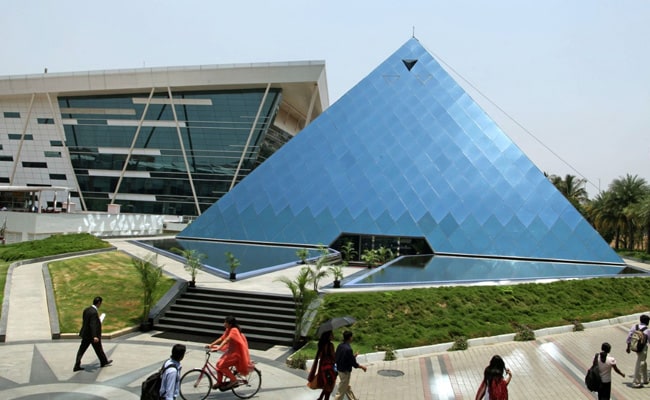
Opinion: Infosys, Globalisation's Poster Child, Faces Political Headwinds
NDTV
Infosys was founded in 1981 and rapidly became a symbol of the rise of a new India - high-tech and globally-connected.
The Infosys campus in Bengaluru looks as if it is made from bits of from the developed world that have been flat-packed to India and then lovingly reassembled. The predominant theme is Silicon Valley bland: low-slung office buildings, well-maintained gardens, gyms, yoga studios and putting greens, even a resort-size swimming pool. But there are also echoes of iconic buildings such as the Sydney Opera House, the Louvre pyramid and St. Peter's Basilica. Anybody who wanted to write the history of capitalism through the medium of corporate headquarters - and it's as good a way of doing the job as any - might be advised to open the chapter on the recent age of globalization with this campus.
Infosys Ltd. was founded in 1981 by seven Indian entrepreneurs with Rs 10,000 between them. It rapidly became a symbol of the rise of a new India - high-tech and globally-connected - as the first Indian company to list on the NASDAQ and, in August 2021, the fourth to cross $100 billion in market capitalization. It was during a visit to the Bengaluru HQ in 2000 that the New York Times' Thomas Friedman came up with his famous formulation that "the world is flat" - that every country's now on a level playing field. And it was to this campus that a succession of foreign dignitaries - Vladimir Putin in 2004 and David Cameron in 2010 - came when they wanted to discover the new India.
Infosys continues to be a poster child of globalization, with operations in more than 50 countries and a good proportion of the world's companies (including Bloomberg) among its clients. Its consolidated net profits rose by 12% in the most recent March quarter. The company is still, in many ways, in the same business as it was when Friedman made his flat world observation - bringing Indian tech prowess to the global market at competitive prices. The majority of its approximately 260,000 employees are based in India. The company's core competence is arguably its ability to turn the products of Indian higher education into polished professionals at a fearsome clip.
Yet Infosys and its disciples are increasingly being battered by forces that refuse to follow the logic of the global market: forces that have to do with elemental things such as political passions, communal identities and group loyalties. The world may be flat when it comes to sending pulses of electricity down communication wires. But it is decidedly spiky when it comes to anything to do with politics.
